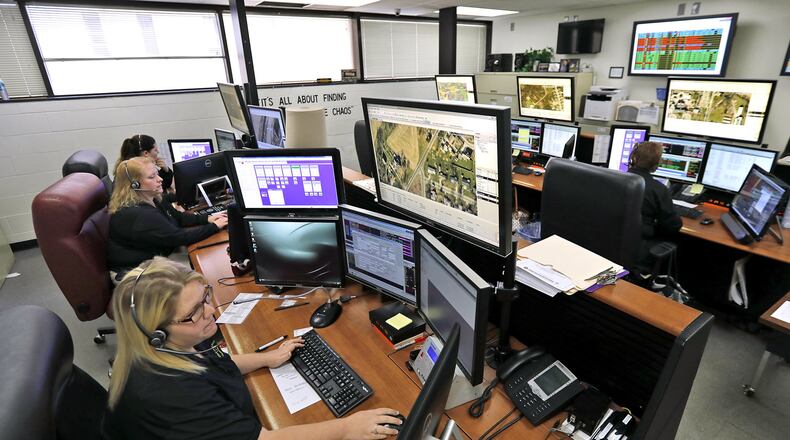This is not the first time Donahue has faced such charges. He pleaded guilty to the same charge in November 2017, after he called the emergency number for food.
Because of the volume at dispatch centers, such calls for non-emergency purposes can take attention away from real emergencies, officials said. The City of Springfield received about 75,000 911 calls in 2017, said Paul Hicks, the communications manager for the 911 center for the City of Springfield.
“We do get a lot of hang-up calls, and we also get a lot of calls that aren’t true emergencies, and people don’t know what other number to call,” Hicks said. “So, that’s the go-to number to get ahold of someone.”
There are other numbers that can be used other than 911, like the non-emergency numbers and 211. The Springfield police non-emergency number is 937-324-7680, and the Clark County non-emergency number is 937-328-2560. In Champaign County, the non-emergency number for dispatch is 937-653-3409.
The 211 number is supported and provided by United Way, and it provides non-emergency support and operators who can answer community questions.
A call like Donahue’s asking for groceries can take away time from others who need help, Hicks said.
“They may have to wait for that call to be answered,” Hicks said.
Chief Brian Miller of the Springfield Fire and EMS said he has responded to a call about a television remote. Such responses to non-emergency calls don’t happen often, he said, but they become an opportunity to teach the public.
“When we arrive on those scenes, we say, ‘Hey, really not an emergency, really not the right use of 911,” Miller said.
Such calls can delay responses to more important issues, he said. The system has a certain capacity and a finite number of resources on duty every day, which is why officials continue to stress use only for emergencies.
About the Author
